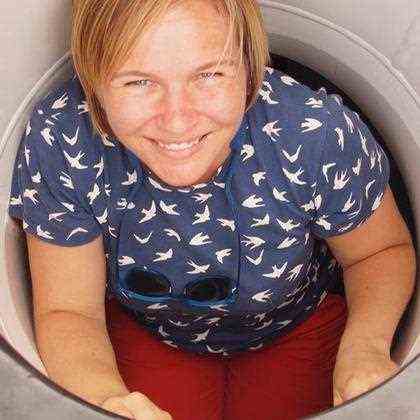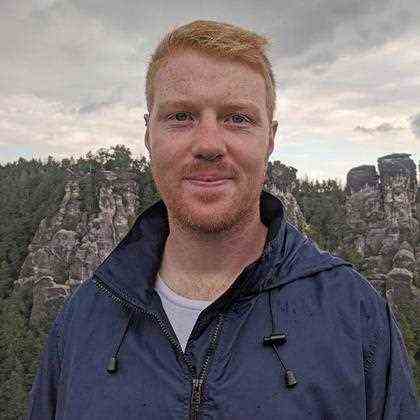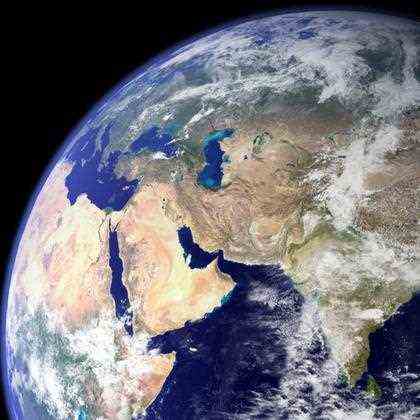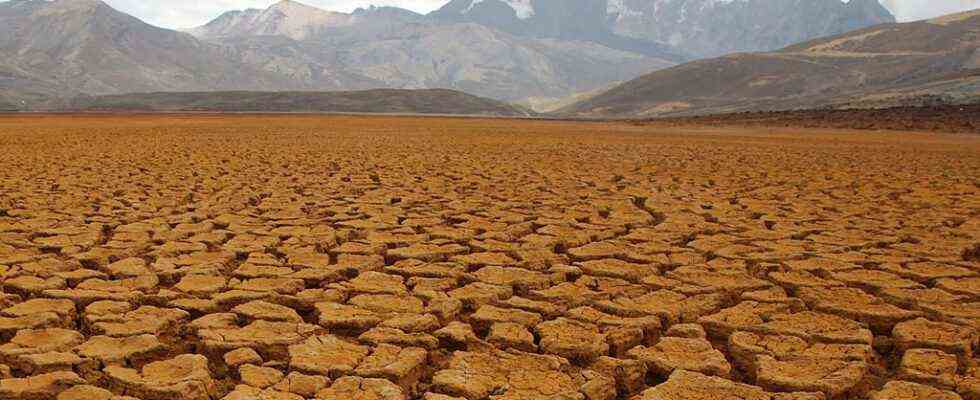interview
Status: 07.09.2021 03:47 a.m.
The third part of the world climate report will only be published in six months. The Scientist Rebellion group has now leaked a draft out of fear that the report will be watered down. What are the science activists calling for?
tagesschau.de: The third part of the report of the Intergovernmental Panel on Climate Change (IPCC) is not supposed to be published until March next year. Why so impatient?
Nana-Maria Grüning: We leaked this to show that scientists are taking personal risks to educate the public because the situation is so dire with the climate crisis. And because there have been repeated wording changes to the Summary for Policymakers. We think that it has an effect on how journalists then process the information. We wanted to bring this to the public in such a raw way.
To person
Nana-Maria Grüning is a molecular biologist and research assistant at the Institute for Biochemistry at the Chartité in Berlin.
Franziska Elmer: It is also important to say that the report we leaked was given by our scientists. They are no longer working on the report. Everyone who reads it in the next six months are representatives of the various governments, not scientists. They are from governments that have changed or deleted wording in the past because they do not fit into the political agenda.

To person
Franziska Elmer is a marine biologist from Switzerland and conducts research on the development of coral reefs in the Caribbean off Mexico.
Kyle Topfer: Since I come from the global south and have seen with my own eyes what the effects of climate change have triggered, I know we don’t have time to wait these six or seven months to discuss detailed wording in the Policymaker version. It is important that everyone can find out what the IPCC scientists have written.

To person
Kyle Topfer comes from Australia and studied environmental sciences at the Technical University of Dresden. He currently lives in Berlin.
tagesschau.de: Who exactly is “Scientist Rebellion” and how do you relate to the Intergovernmental Panel on Climate Change?
Grüning: “Scientist Rebellion” has only been around since the end of last year. We had our first global actions in March, where approx. 150 scientists worldwide took part. We are not that many in the individual countries. But when we do something, we do it in different countries at the same time in order to gain more visibility.
I think scientists have been ignored for 40 years: They have published, they have given interviews, have worked in films, but emissions are rising. As Albert Einstein said: Those who have the privilege to know also have an obligation to act. If we as scientists don’t get louder and just shout out our despair, who should see this as a serious crisis?
Elmer: I’ve been with “Scientist Rebellion” since January because I think climate activism is very important. We scientists are the ones who deliver the news. There are so many of my colleagues who also know what about the climate crisis and they do nothing or very little. I think that’s extremely bad.

Leak on the world climate report
The report of the Intergovernmental Panel on Climate Change (IPCC) consists of three parts. The first part on the state of climate change has already been published. The second and third parts are expected in March next year.
The third part – the Summary for Policymakers – deals with the political measures recommended by climatologists. The “Scientist Rebellion” group leaked the draft last month.
tagesschau.de: There is a very rebellious video on your website in which many scientists express their opinions very clearly. You can feel the impatience. Is that what drives them?
Grüning: In any case. Everyone can’t believe it to be ignored like that. Everyone cannot believe that some governments are really acting criminally corrupt by burning up our future. And we want to oppose it out loud. We believe that only massive civil disobedience can put as much pressure on as it takes to bring about change – because everything else didn’t work before and not because we enjoy it.
tagesschau.de: Was there a special impetus for this, a spark that triggered it?
Elmer: The spark came with “Extinction Rebellion” and then “Fridays for Future” came up. I think Extinction Rebellion managed to turn a small group into a big movement. It started in England, is now a movement worldwide and shows that it is making a difference. After the first actions, England declared a climate emergency. From “Extinction Rebellion” a group has come together to form “Scientist Rebellion”.
tagesschau.de: Are you involved in the IPCC report yourself?
Grüning: None of us in the group.
tagesschau.de: How do you get the paper then? Many scientists are working on the world climate report, but they are also bound to secrecy. So, did you have any contact with anyone who was directly involved in the report?
Grüning: … or who thinks “Scientist Rebellion” is quite good!
tagesschau.de: And even for this person who passed it on, it is rather dangerous from a scientific point of view: After all, you risk your academic reputation and your work, or not?
Grüning: See how brave it is just to let us know. That’s great!
tagesschau.de: What did you hope to gain from the leak in the draft report?
Grüning: We hoped that the IPCC report and attention to it would be expanded. That it is more discussed and carried out in the media. This is because that is a very system-critical content. It says we can no longer go on with economic growth. And our policy is geared towards economic growth and that is destroying our planet.
In the past, activists for criticism of consumption, growth and capitalism were ridiculed. It is important that this now also comes from conservative scientific ranks, from scientists who say “We can no longer afford this”.
tagesschau.de: You are more than concerned. But do you think that will impress a politician like a Bolsonaro, Putin or Orban?
Elmer: It’s not just Bolsonaro and Putin who are working against it. I’m from Switzerland. The footprint of our financial system is twenty times larger than the domestic Swiss footprint. Politicians could require the National Bank to stop investing in fossil fuels. If the National Bank did that, then UBS and Crédit Suisse would too. But that doesn’t happen. Politicians see that they are not dictating anything to the banks. This is the greatest leverage we have in Switzerland.
Potter: It’s not about getting attention with our actions, it’s about having an honest discussion. We have been attacked by others so often that we would tell some kind of madness, especially when it comes to the topic of growth. We want a fact-based, honest discussion. Ultimately, our economies are there for us and not we for them.

